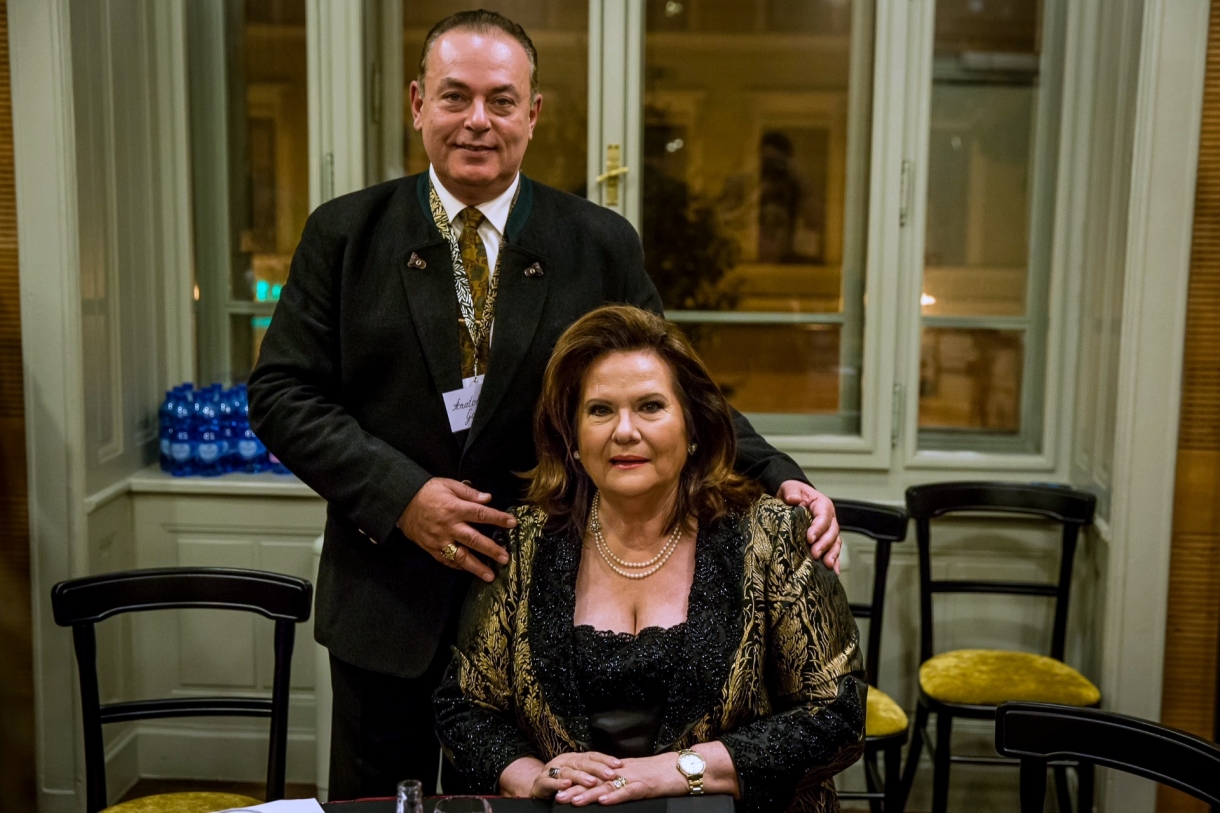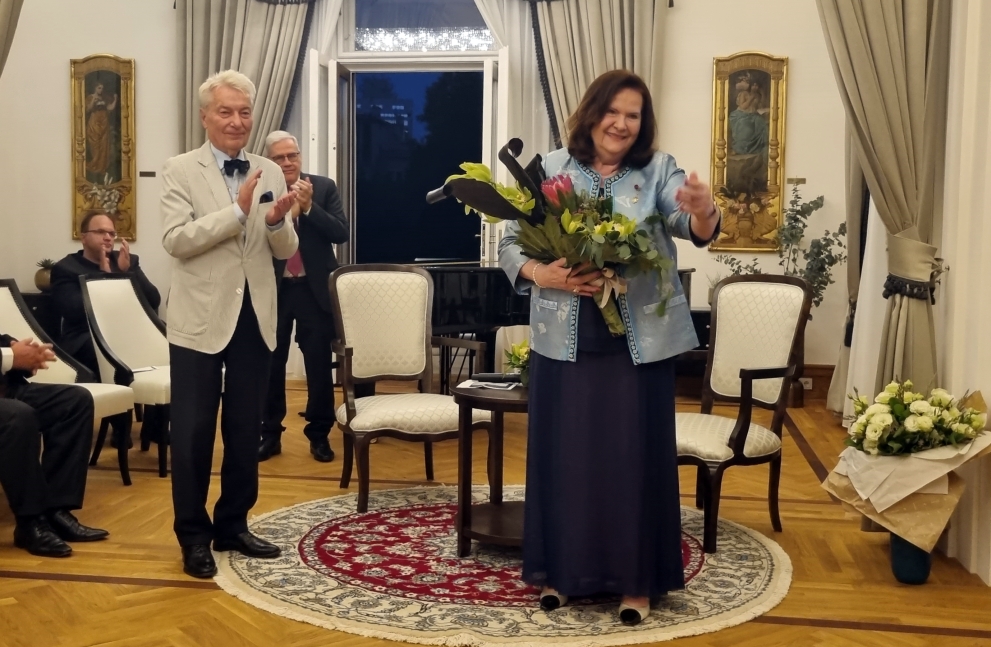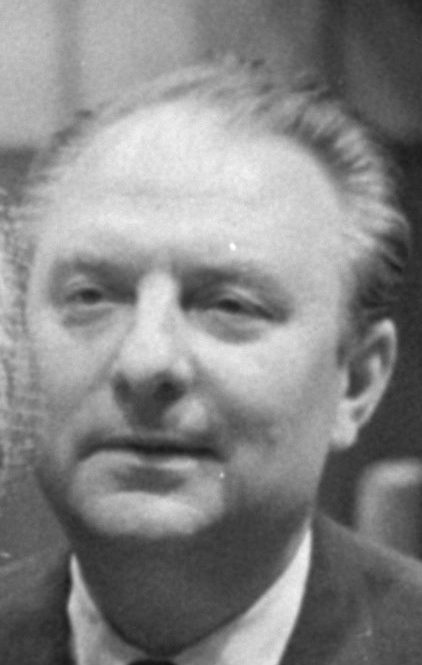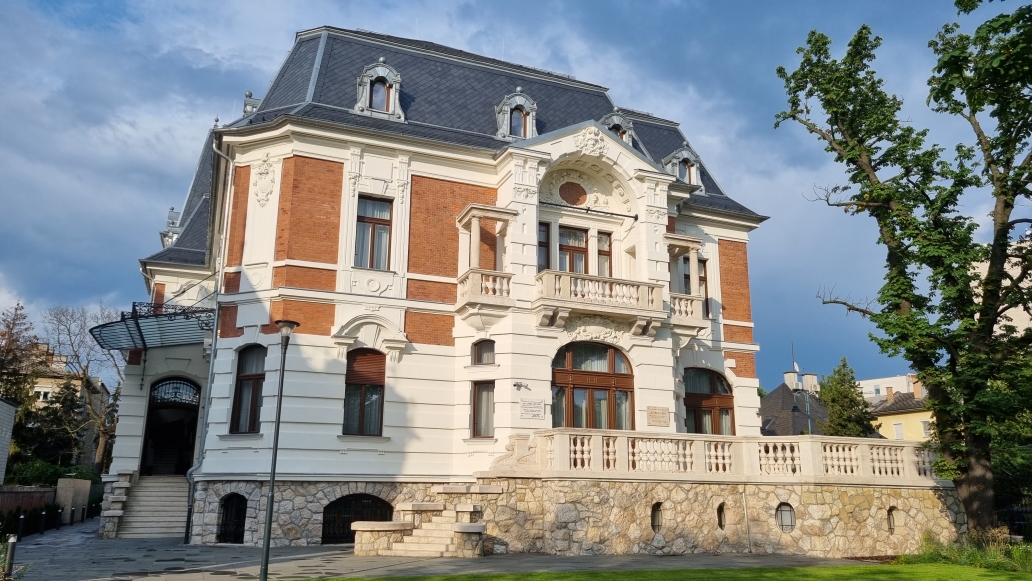
The world-renowned Hungarian soprano speaks about her career and her love for Hungary.Continue reading

The Hungarian news portalKultura.hu recently conducted an interview with Éva Marton, and we are bringing you a few excerpts from the discussion. The Hungarian singer has had a career that is hard to find in the international opera world, and is still active today on many fronts. Hungary Today gained access to the exclusive birthday celebration held at the Villa Róheim. Ms. Éva Marton is a founding member of Hungary Today‘s publisher, the Friends of Hungary Foundation.
Éva Marton was honored with the title of ‘chamber singer’ by the most prestigious theaters. Medals and diplomas have been awarded not only for her voice and her playing, but also for her artistic attitude. The opera singer is 80 years old and still very much active.
“I was very determined to become an opera singer,” she said, describing her childhood. “I did not think about anything else. I was always singing at home.”
During her childhood, the future singer’s house overlooked the inner courtyard, and somewhere there was the rehearsal room of Tibor Udvardy, one of the leading tenors of the Opera House. She was playing downstairs and suddenly she heard a beautiful male voice. She stopped playing and just listened. She asked the adults who was singing, and they replied by saying “He is Mr. Udvardy, the artist who sings at the Opera.” “Well then, I would like to do the same,” she thought to herself.

Tibor Udvardy; Photo: Fortepan / Szalay Zoltán
Éva Marton studied piano on Bartók’s collection of pieces entitled “Mikrokosmos.” Later, she learned folk songs from her singing teacher, Kató Gödry.
She was not immediately accepted to the Academy of Music because they said she had an immature voice, she was too young, she should come back for the next tryouts. She did not feel it was a huge blow because she had been a professional athlete, a junior national team volleyball player, and she was putting all her energy into training. As an athlete, she could travel, a privilege at the time. The following year she was accepted.
“I was assigned to Endre Rösler, who was one of the most beautiful lyric tenors. Good and fine people corrected and improved me as a singer and as a person. Unfortunately, Rösler died early and I continued with Jenő Sipos,” she added.
Then, although she graduated with honors, she was not accepted as a scholarship holder to the Hungarian State Opera, despite one of her teachers, Miklós Lukács, being the Director General of the Opera House and the other, András Mikó, a main director. However, with some “divine help,” in September she entered the Ybl Palace as a scholarship holder of the Ministry of Culture.

Villa Róheim, where the birthday presentation was held. Photo: Hungary Today
She went on to play the Queen of Actors in Sándor Szokolay’s Hamlet. She sang Queen of Shemakhan, the lead role in Rimsky-Korsakov’s opera The Golden Cockerel, then she was Freia in Treasure of the Rhine, Voice from Heaven in Don Carlos, and the title role in Manon Lescaut, one after the other. Marton later sang Countess in The Marriage of Figaro. Then, suddenly came Tosca…
Christoph von Dohnányi was giving a concert in Budapest. I sang for him at the Academy of Music in my choir room.”
“As a result I was invited to Frankfurt am Main, where he was the principal conductor. I had to learn the Countess in German,” she explains about the start of her international stardom.
They took her to Frankfurt for three years. She followed Dohnányi to Hamburg in 1977, and worked as a freelancer from then on. They signed a contract that she would do twenty performances a year. There was a great team there, all of whom became famous and lifelong, important working friendships were forged.

“In questa reggia,” Éva Marton as Turandot in front of 4,000 spectators at the New York MET, 1987
“I traveled a lot, but for me it was rest. I always had two or three piano excerpts in my bag, preparing for the next assignment. Books too, because I have been reading a lot since I was a little kid. If my husband could not accompany me, I went to famous museums, sat in on concerts,” she reminisced.
“I knew what I was going to sing at least three, but more likely five years in advance. That helped tremendously. At that time, opera directors all over the world were thinking differently. They knew and were watching, if somebody was coming up. Zoli (Editor’s note: Éva’s husband, Zoltán Marton) used to say that even if there are few people in the auditorium, there is always someone worth singing for.”
It is not unprecedented, but it is very rare for someone to sing three major roles in one opera. Still, that is exactly what happened with Richard Strauss’ Elektra, where she first sang Chrysothemis, then the title role, and finally Clytemnestra.
About today’s opera the soprano noted:
I do not like this constant casting. It takes too much energy. In the old days, if you sang well, you did not have to audition because the roles almost came naturally.”
Founder of the Éva Marton International Singing Competition, Vice-President of the Hungarian Corvin Chain Board, founder of the Friends of Hungary Association…yet, Éva Marton has no plans to stop:
“An opera studio. I would love that. We have the Eiffel Workshop, we have the Eva Marton Singing Competition, I would like to link it with other national singing competitions so that we can invite competitors from there to the studio. I would like to create a small company from which you can bring people into a big production. I would like to do performances with young people, not just rehearsing, but going up on stage, learning that it is not that easy. The two academic years they spend on a master’s degree are not enough. It gives you, at best, only a general education, but it is not a foundation on which you can build a stable career,” the singer explained her future plans.
Via Kultura.hu, Featured photo: Hungary Today.